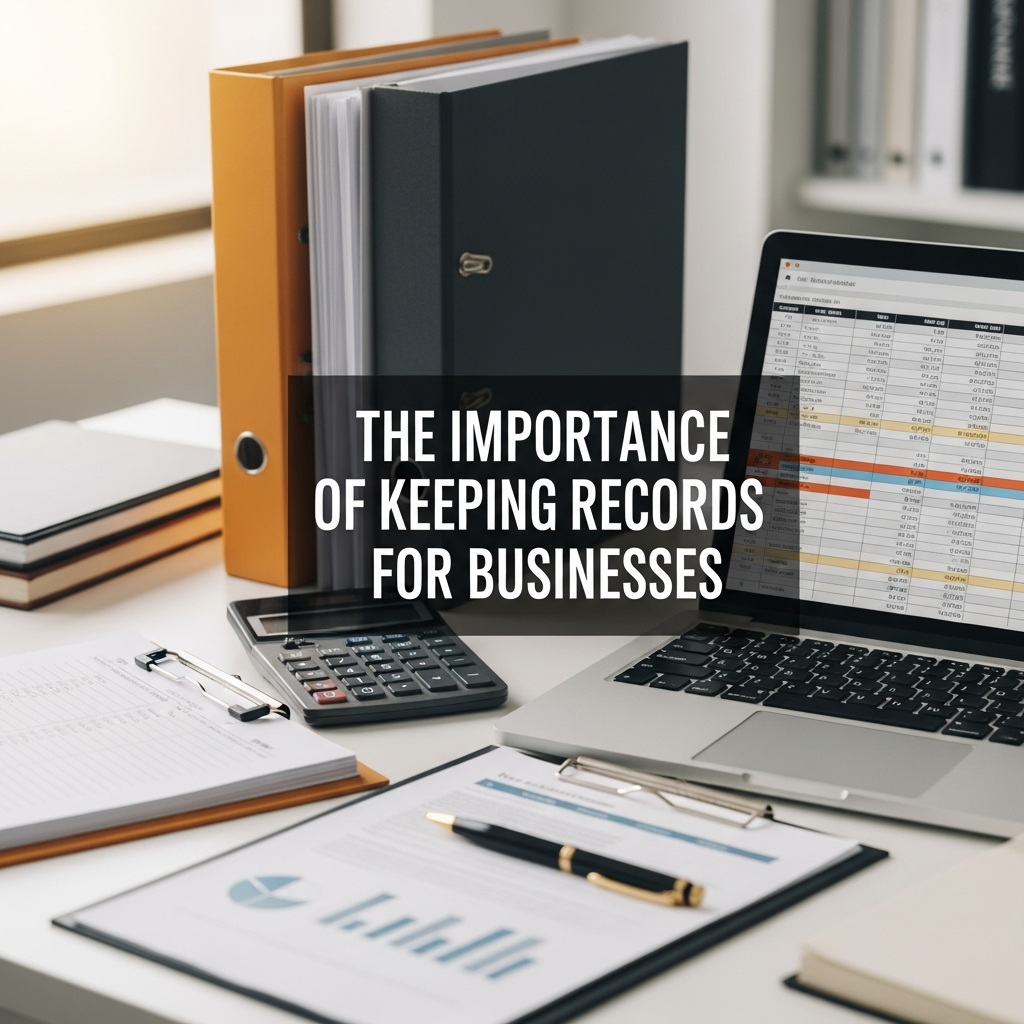We cannot overstate the importance of keeping accurate and up-to-date records in today’s fast-paced business environment. Whether you run a small startup or manage a large corporation, maintaining detailed records is crucial for compliance, decision-making, and long-term growth. Let’s explore why recordkeeping should be a top priority for every business owner.
1. Legal Compliance
One of the primary reasons for maintaining business records is to comply with local, state, and federal regulations. Tax authorities require businesses to provide documentation for income, expenses, payroll, and other transactions. Accurate records help ensure that your business fulfils all legal obligations and avoids potential fines or penalties due to non-compliance.
2. Financial Management
Good records are essential for effective financial management. By tracking income, expenses, and cash flow, business owners can monitor their financial health, identify trends, and make informed decisions. Proper records also make it easier to prepare accurate financial statements, which are vital for attracting investors or securing loans.
3. Efficient Operations
Detailed records streamline day-to-day operations. From inventory management to customer service, having access to accurate information allows employees to work more efficiently and provide better service. For example, maintaining records of customer interactions can help personalise service and resolve issues more quickly.
4. Informed Decision Making
Business growth depends on making informed, strategic decisions. With well-maintained records, you can track performance over time, analyse which products or services are most profitable, and identify areas for improvement. This data-driven approach helps you allocate resources more effectively and set realistic goals.
5. Audit Preparedness
Audits, whether internal or external, are a fact of business life. Having organised records ensures that you can respond quickly and accurately to auditor requests. This not only saves time and reduces stress but also demonstrates professionalism and transparency, which can strengthen your reputation with stakeholders.
6. Protecting the Business
Accurate records can help protect your business in the event of disputes or litigation. Contracts, receipts, and correspondence are all vital pieces of evidence that may be required to resolve conflicts with clients, suppliers, or employees. Without proper documentation, your business may be at a disadvantage.
Conclusion
Keeping accurate records is not just a regulatory requirement—it’s a fundamental practice that supports the success and sustainability of your business. By investing time and resources in efficient record-keeping systems, you can improve compliance, streamline operations, and set your business up for long-term growth.
Start organising your records today, and pave the way for a stronger, more resilient business tomorrow.
Discover more from TheHubBuzz.com
Subscribe to get the latest posts sent to your email.

